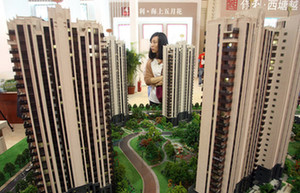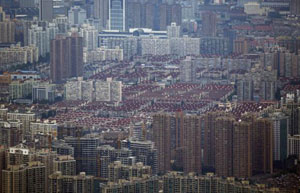Home truths from IMF on property price threat
By Gao Changxin in Shanghai (China Daily) Updated: 2014-06-13 07:11In China, the price-to-rent ratio is well above 50 in Beijing and Shanghai, much higher than the historical level in developed economies. And housing prices have started to soften, which are stirring worries that China's housing market might crash and cause an economic" hardlanding" .
The average price in 100 Chinese cities sampled was 10,978 yuan ($1,770) per square meter in May, a dip of 0.32 percent month-on-month, according to the China Index Academy Ltd, a Beijing-based research institute that's wholly owned by SouFun Holdings Ltd. That marked the first month-on-month drop since June 2012.
"We do not expect a sudden collapse of property prices or a financial or balance-of-payments crisis, as seen often in emerging economies", wrote UBS AG's Hong Kong-based China economist WangTaoin a May 27 note.
She said that homebuyers in China aren't heavily leveraged and the government still has many ways to stabilize construction and support economic growth. The government, for example, can increase infrastructure investment and subsidized housing construction, accelerate pro-growth reforms and eventually ease home purchase restrictions as well as relax credit and hukou (residence) policies to help boost property demand.
In his blog post, Zhu said that the tools for containing housing booms are still being developed, but he encouraged countries where home pricesare "exuberant" to take action.
"The interactions of various policy tools can be complex. But all this should not be an excuse for inaction. The interlocking use of multiple tools might overcome the shortcomings of any single policy tool," he wrote.
|
 |
 |
- China's industrial output accelerates
- China's May retail sales up 12.5%
- Kiwi meat exporters show commitment to Chinese market
- Mitsubishi recalls 920,000 vehicles
- DS Global CEO mulls hybrid car for China
- Ford lowers fuel economy rating for six vehicles
- Alibaba pens delivery deal with China Post to boost e-commerce
- Mobile pay new 'gene' of finance

















